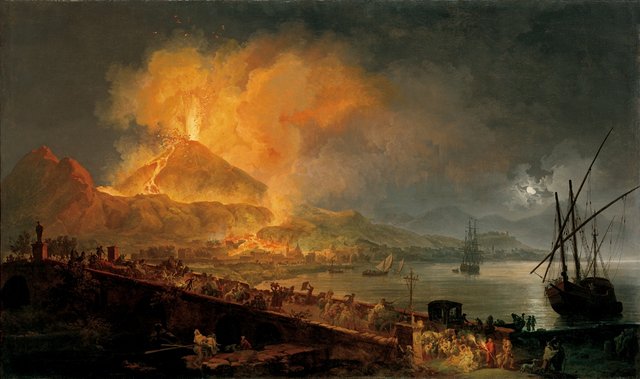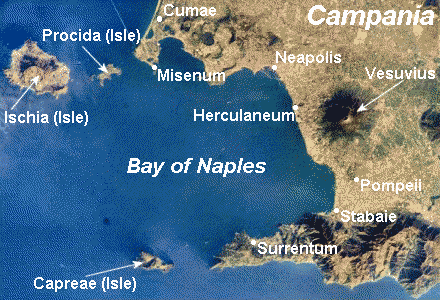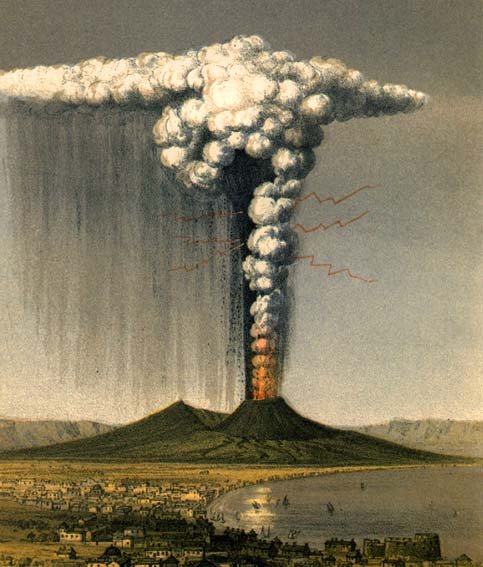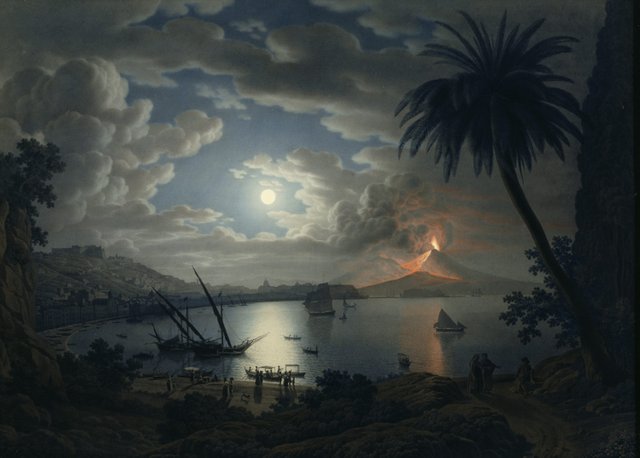Eyewitness Account of the Eruption of Mt. Vesuvius
In Misenum, 17 year-old Pliny the Younger witnessed the effects of the eruption, along with his mother and uncle. It was only until years that he recorded his harrowing experience.

It began when his uncle noticed strange clouds rising above a mountain in the distance on 24 August, in 79 A.D. He figured he would sail along the coast to get a better look at it, but before he could he received a message from a friend, imploring him to rescue her from the dangers she fears will soon face. His uncle was in command of a fleet at the time, and once he realized the possible threat emerging, ordered his warships to be ready as he now planned to rescue anyone he could. As he neared his destination, the ash fell thicker along the coast, with bits of charred stone dropping from the sky.

Once his uncle arrived, he welcomed his friend and rested that evening. Before bed, he incorrectly assumed the fires on Mt. Vesuvius were merely fires of the abandoned homes. Early in the morning, his uncle was roused. Now the ash was rising high, and they would have been trapped inside if they stayed. They tied pillows on their heads and made their way to the shore, in the hope they could flee. However, the sea was still too choppy and were now forced to stay. His uncle eventually collapsed due to suffocation, and his body was found two days following the event.
Pliny and his mother were back at home, unaware of what was occurring. They went about their day as usual, and since tremors were common in their region, they thought nothing of the shocks resonating from Vesuvius. However, they awoke in the middle of the night by violent shaking, so they decided to sit out on their forecourt. Possibly due to shock, Pliny pulled out a volume to read and went on as normal. It was only until a friend of his uncle's came round that they decided to flee once it felt that the buildings would soon crush them from the earthquakes.
This next part I will leave it up to Pliny, as he is the only one that can best illustrate the sights and sounds.

At this point, his mother insisted he go on without her and to run as fast as he could, since he was quite young and she was now so old. He refused to leave without his mother however and soon they quickened their pace.


After what may have seemed like an eternity, the thick clouds of smoke faded away and Pliny was finally greeted with daylight again. They returned home and recovered as best they could, with spurts of anxiety as the earth still shook from time to time.
The last part fascinates me the most, and is perhaps due to some shortsightedness. Pliny believed that this event would never be significant for history, and that we the readers will never consider it important to record.
Carey, John. Eyewitness to History. New York: Avon, 1997. Print.
I used to translate Pliny's stories from Latin in secondary school and we climbed the Vesuvius on a field trip to Italy. Ahh the memories!
Happy new year and keep up the good posts!
That sounds amazing! Hope I can make the same trip some day. Thank you for your support, and have a wonderful new year!
You too!
Yeah climbing the volcano was a really cool experience. Did you know it's not the actual volcano anymore, but the new volcano that emerged when it erupted?
When you're at the top, you can see the lava flowing if you're lucky!
Is Vesuvius deadliest volcano in history??
@namiks payed 3.697 SBD to @minnowbooster to buy a stealth upvote.

transaction-id 441334d73f0352682551991e3cc6d550e8089ed9
@stealthgoat